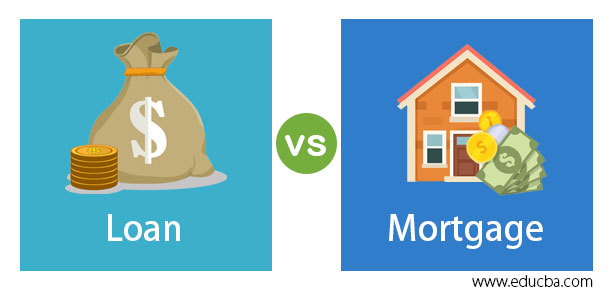A Total Summary of Conventional Mortgage Loans for First-Time Customers
A Total Summary of Conventional Mortgage Loans for First-Time Customers
Blog Article
Understanding the Numerous Types of Mortgage Available for First-Time Homebuyers and Their One-of-a-kind Benefits
Browsing the variety of mortgage options offered to new buyers is crucial for making enlightened financial choices. Each kind of financing, from traditional to FHA, VA, and USDA, offers one-of-a-kind advantages customized to diverse customer needs and situations. In addition, unique programs exist to boost affordability and supply crucial sources for those entering the housing market for the very first time. Recognizing these differences can significantly impact your home-buying journey, yet lots of stay not aware of the better information that can affect their choices. What important aspects should you take into consideration when reviewing these alternatives?
Traditional Lendings
Traditional lendings are a keystone of mortgage financing for new homebuyers, supplying a dependable choice for those looking to buy a home. These financings are not insured or ensured by the federal government, which identifies them from government-backed car loans. Commonly, conventional fundings call for a higher credit rating and a more substantial deposit, usually ranging from 3% to 20% of the purchase cost, depending upon the lending institution's needs.
One of the significant advantages of traditional finances is their adaptability. Borrowers can select from various funding terms-- most frequently 15 or three decades-- permitting them to straighten their home mortgage with their economic objectives. In addition, standard loans may offer lower interest prices contrasted to FHA or VA loans, especially for borrowers with solid credit report accounts.
One more benefit is the absence of upfront home mortgage insurance policy costs, which prevail with federal government fundings. Exclusive home loan insurance coverage (PMI) may be called for if the down repayment is less than 20%, yet it can be eliminated once the consumer attains 20% equity in the home. In general, conventional financings offer a eye-catching and feasible financing alternative for novice homebuyers looking for to navigate the home mortgage landscape.
FHA Finances
For many novice buyers, FHA finances represent an obtainable pathway to homeownership. Guaranteed by the Federal Housing Management, these car loans provide versatile credentials requirements, making them ideal for those with restricted credit rating or lower earnings degrees. One of the standout functions of FHA loans is their reduced deposit requirement, which can be as reduced as 3.5% of the acquisition price. This substantially reduces the monetary obstacle to access for many hopeful home owners.
Furthermore, FHA financings enable higher debt-to-income ratios compared to traditional financings, accommodating borrowers who may have existing financial responsibilities. The rates of interest connected with FHA financings are often competitive, further enhancing affordability. Borrowers likewise take advantage of the capability to consist of specific closing expenses in the finance, which can relieve the upfront financial burden.
However, it is necessary to keep in mind that FHA loans require home mortgage insurance policy costs, which can boost regular monthly repayments. Despite this, the overall advantages of FHA financings, consisting of availability and lower initial prices, make them an engaging choice for novice homebuyers looking for to go into the real estate market. Understanding these loans is crucial in making educated decisions about home funding.
VA Loans
VA fundings provide an unique funding option for eligible experts, active-duty service members, and particular members of the National Guard and Gets. These finances, backed by the U.S - Conventional mortgage loans. Division of Veterans Affairs, provide numerous advantages that make own a home a lot more accessible for those that have offered the nation
Among the most considerable benefits of VA finances is the absence of a deposit requirement, permitting qualified debtors to finance 100% of their home's acquisition price. This function is specifically beneficial for new property buyers that may have a hard time to conserve for a considerable down settlement. Additionally, VA financings generally feature competitive rate of interest prices, which can result in reduce month-to-month payments over the life of the financing.
Another significant benefit is the absence of private home loan insurance policy (PMI), which is often needed on standard fundings with reduced down payments. This exclusion can lead to significant cost savings, making homeownership a lot more budget friendly. Moreover, VA finances supply flexible credit score demands, making it possible for debtors with reduced credit rating to qualify more quickly.
USDA Financings
Discovering funding choices, novice homebuyers may find USDA loans to be an engaging selection, particularly for those wanting to purchase residential or commercial property in suv or country areas. The United Recommended Reading States Division of Farming (USDA) provides these lendings to promote homeownership in marked country regions, providing a superb chance for eligible buyers.
Among the standout functions of USDA lendings is that they call for no deposit, making it less complicated for newbie buyers to get in the housing market. Additionally, these financings normally have competitive rates of interest, which can lead to decrease monthly settlements compared to standard financing alternatives.
USDA financings likewise feature versatile credit scores needs, allowing those with less-than-perfect credit to qualify. The program's revenue limitations make certain that support is routed towards low to moderate-income family members, even more sustaining homeownership objectives in rural neighborhoods.
In addition, USDA fundings are backed by the federal government, which website here decreases the danger for lending institutions and can improve the authorization procedure for borrowers (Conventional mortgage loans). As a result, newbie buyers considering a USDA financing may find it to be a helpful and obtainable choice for attaining their homeownership desires
Special Programs for First-Time Buyers
Numerous newbie property buyers can profit from unique programs made to aid them in navigating the complexities of purchasing their first home. These programs typically supply economic motivations, education and learning, and sources customized to the one-of-a-kind needs of novice buyers.

Furthermore, the HomeReady and Home Feasible programs by Fannie Mae and Freddie Mac accommodate low to moderate-income customers, using flexible home mortgage choices with reduced home loan insurance prices.
Educational workshops held by various companies can also assist first-time customers understand the home-buying procedure, enhancing their chances of success. These programs not just alleviate economic burdens yet also encourage customers with understanding, eventually assisting in a smoother change right into homeownership. By exploring these special programs, new property buyers can uncover useful resources that make the imagine possessing a home anonymous a lot more achievable.
Conclusion

Standard loans are a keystone of home loan financing for first-time buyers, supplying a reputable option for those looking to purchase a home. These financings are not guaranteed or guaranteed by the federal government, which distinguishes them from government-backed financings. Furthermore, conventional loans might offer lower interest prices compared to FHA or VA loans, specifically for customers with solid debt profiles.
Additionally, FHA finances allow for greater debt-to-income ratios contrasted to conventional financings, fitting consumers who might have existing financial commitments. Additionally, VA finances generally come with affordable interest rates, which can lead to decrease monthly settlements over the life of the lending.
Report this page